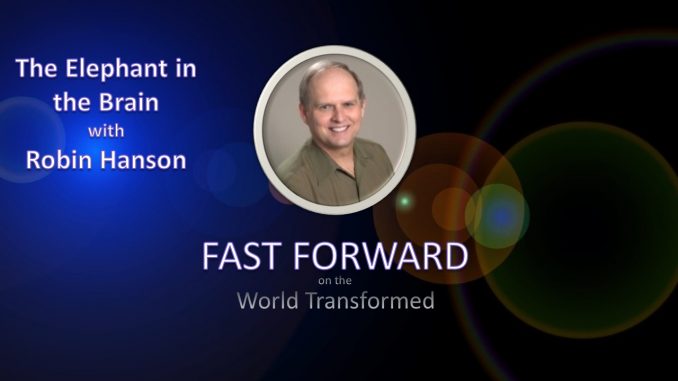
Why do we do the things we do? We like to think we have good reasons for the choices we make, but we may very well be fooling ourselves. In their intriguing new book, The Elephant in the Brain: Hidden Motives in Everyday Life, authors Robin Hanson and Kevin Simler explain how hardwired primate behavior, social norms, and evolution combine to obscure our motives…even (or maybe especially) from ourselves.
While it’s easy to see how hiding our motives from others might bring about certain advantages, it’s harder to imagine why we would ever try to hide our reasons from ourselves. But Hanson argues that it’s no great mystery.
“We prefer to attribute our behavior to the highest-minded motives,” he explains. “But often our behavior is better explained by less high-minded motives — i.e., more selfish motives — and we’d rather not look at that and acknowledge it.”
Moreover, if we fool ourselves about our motives, it makes it easy for us to fool others.
“It’s hard to lie,” says Hanson. “Actors are paid a lot, and they spend years learning to act because it’s hard to act believably. We give off so many cues — our tone of voice, our body language, the words we choose — that tell other people what we’re really thinking compared to what we’re saying. And when it’s important enough to not give off those clues, the simple thing our minds do is just not tell us.”
So what are we kidding ourselves about? The book argues that our motives in seeking education, giving to charity, or even providing medical care are very different from what we assume them to be. If you create a work of art, if you go to church, if you vote — whatever you do — there’s a good chance that it’s not for the reasons you thought. Or at least not entirely.
In the interview presented here, Hanson talks about the role that self-deception has played in making humans more intelligent. And he explores whether you might be better off recognizing your sometimes not-too-admirable reasons for doing what you do, or whether it’s better to continue to ignore the elephant in your brain.
About Our Guest
Robin Hanson is an associate professor of economics at George Mason University and a research associate at the Future of Humanity Institute of Oxford University. He has a doctorate in social science, master’s degrees in physics and philosophy, and nine years of experience as a research programmer in artificial intelligence and Bayesian statistics. With over 3600 citations and sixty academic publications in journals such as Science, IEEE Intelligent Systems, Journal of Public Economics, the Proceedings of the Royal Society — and many others — he’s recognized not only for his contributions to economics (especially, pioneering the theory and use of prediction markets), but also for the wide range of fields in which he’s been published. He is the author of The Age of Em: Work, Love, and Life when Robots Rule the Earth. He blogs at Overcoming Bias.
Music: www.bensound.com
FF 003-698
